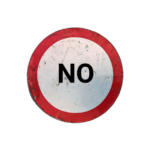What Are The Different Offences Under Graffiti Laws in NSW?

This Blog post on the different offences under graffiti laws in NSW follows on from our post last week on the penalties for Graffiti.
Graffiti is an ever-present problem, especially in urban areas, and it is an issue that frequently causes community concern. The Graffiti Control Act 2008 is specific anti-graffiti legislation aimed at reducing the amount of graffiti, and deterring people from marking buildings, public transport and other public places.
Prior to the introduction of the legislation, graffiti offences were treated as malicious damage and were dealt with under the Summary Offences Act. The Graffiti Control Act not only makes creating graffiti illegal, but also prohibits a number of other related activities. Here are the main offences under the specific graffiti laws in NSW.
Marking premises or property
Marking property includes intentionally defacing a premises or other property without the permission of the owner. The maximum penalty for this offence is 12 months’ imprisonment, or a fine.
Possession of a graffiti implement
Being caught with a graffiti implement (a spray can, marker pen or other instrument which can leave a permanent mark) is a criminal offence if it can be demonstrated that you had the intention of using it for graffiti purposes. If you are caught with a graffiti implement, police can confiscate the implement. The maximum penalty for this offence is six months’ imprisonment, or a fine.
Posting bills and other marking activities
It is a criminal offence to affix a paper or placard to any premises or to mark a premises with chalk, paint or any other material if the area marked is within public view. For this to be a criminal offence, it needs to happen without the permission of the owner or occupier of the premises. The maximum penalty for posting bills is a fine.
Sale of spray paint cans
Selling spray paint cans to anyone under the age of 18 is a criminal offence. If the person selling the spray paint cans believed the buyer was over the age of 18 at the time, this can form the basis of a defence.
If you are an employer and your employee sold the spray paint cans, you may still be liable for charges, depending on whether you were aware of the breach and could reasonably have prevented it.
The maximum penalty for selling spray paint cans to someone under the age of eighteen is a fine.
Having an unsecured retail display of spray cans
Spray paint cans must be secured according to certain guidelines if they are being displayed in a retail premises. If you display spray paint cans, they need to be:
- In a locked cabinet.
- Behind a counter or in a place where they can’t be reached without help from the occupier or an agent or assistant of the occupier.
- In any other way which is in keeping with regulations.
The maximum penalty for failing to secure spray cans on display is a fine.
Supply of spray cans to persons under 18
Supplying spray paint cans to a person under the age of 18, unless for legitimate purposes, is a criminal offence. It is a defence if the person supplying the spray paint cans genuinely believed that they would be used for a legitimate purpose. A legitimate purpose includes educational or artistic activities, maintenance or construction, or any other lawful purpose which doesn’t contravene the Graffiti Control Act. The maximum penalty for this offence is a fine.
Possession of spray cans by persons under 18
A person under the age of 18 who is found with a spray paint can in their possession in a public place is committing an offence, unless the spray paint can is for a legitimate purpose.
A legitimate purpose includes for their occupation, education or training, or as part of a lawful activity which isn’t a criminal offence under the Graffiti Control Act.
The maximum penalty for this offence is six months’ imprisonment.
If a person under the age of 18 is found with a spray paint can in their possession by police, it can be confiscated and held at the police station. It can be returned if the person it was taken from can demonstrate that they had it in their possession for a legitimate purpose.
Although the Graffiti Control Act has been in place for a number of years, a NSW Government review undertaken last year found that only 25% of offenders have been charged under the act since its introduction. Police reportedly say the legislation is too difficult to use, and charge offenders with property damage under the Crimes Act instead.






